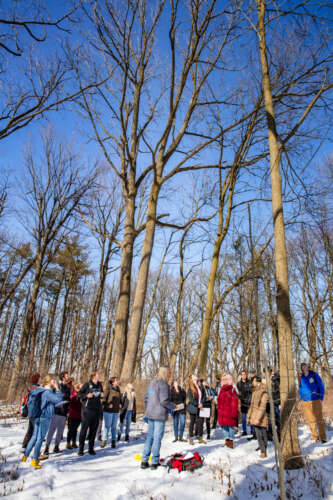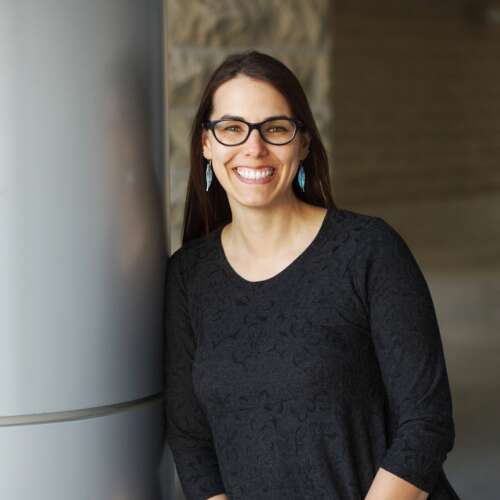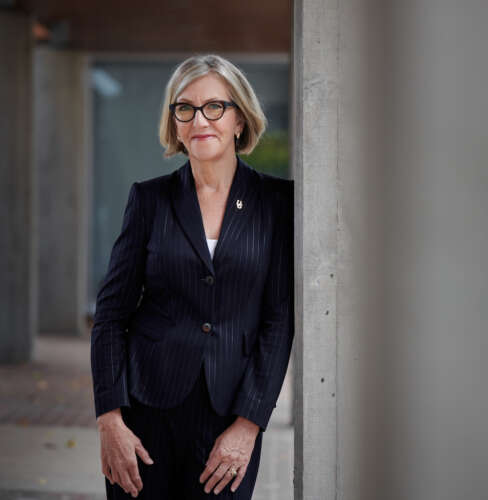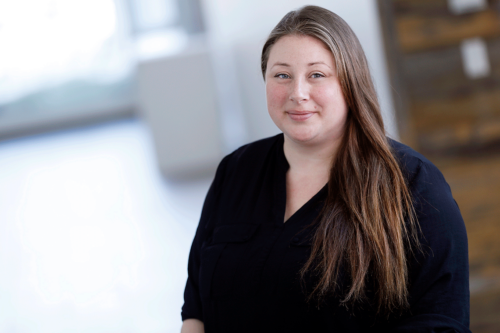
Indigenous and non-Indigenous approaches to environmental protection will come together in a new University of Guelph degree program that is the first of its kind in Canada.
The four-year bachelor of Indigenous environmental science and practice (BIESP) program will be launched next fall.
Based in the Ontario Agricultural College’s (OAC) School of Environmental Sciences, the program emphasizes Indigenous knowledge systems alongside cutting-edge training in western environmental science.
The interdisciplinary program will feature field trips to Indigenous communities and organizations, land-based instruction, and participation in discussion circles and ceremony. Students will work directly with Indigenous communities and organizations on projects, and will learn from First Nations, Inuit and Métis Elders and knowledge holders.
The program was inspired by the Chippewas of Nawash Unceded First Nation, a community in the Bruce Peninsula. Leaders there approached the University about developing an environmental and resource management program to train students in ways that would support Indigenous communities.

“It is very exciting to see BIESP get ready to accept the first cohort of students next year, because the seed of the idea was planted by a First Nations community partner,” said Cara Wehkamp, special adviser to U of G president Charlotte Yates on Indigenous initiatives.
“With the support of many, it has grown into a unique offering that works to weave Indigenous and western environmental science to help address complex social and environmental challenges.”
Wehkamp said there is a need in Canada and abroad to improve relationships with Indigenous peoples and their ancestral and territorial lands.
“The BIESP program responds to the need to have scientists that can work ethically and meaningfully with Indigenous peoples and within multiple knowledge systems,” she said.
Yates said the new program recognizes the inherent validity and value of Indigenous ways of knowing and doing.

“The program offers a critical yet constructive view of environmental science, one grounded in Indigenous knowledge systems, methodologies, priorities and values and oriented towards concrete action,” said Yates. “It brings our extraordinary scientific expertise in the field together with the richness of Indigenous wisdom and practice. It is innovative and full of potential to make a real difference in our world.”
The program responds to the Truth and Reconciliation Commission’s calls to action, particularly those calling for the elimination of educational and employment inequities between Indigenous and non-Indigenous Canadians, the need to address a backlog of Indigenous students seeking a post-secondary education, and the incorporation of Indigenous education into existing programming.
Intended for Indigenous and non-Indigenous students, the program will provide unique learning opportunities and skills for the next generation of environmentalists, said Prof. Jonathan Schmidt, Ontario Agricultural College associate dean, academic. He said the program is expected to create a welcoming space that will attract Indigenous students and maintain Indigenous culture.
“We will be encouraging Indigenous students to enter the program and will be working closely with our First Nations, Inuit and Métis partners,” said Schmidt, a professor in the School of Environmental Sciences. “We are also developing pathways for students to enter the program from diploma programs. We see BIESP as another great opportunity for Indigenous students to consider as a post-secondary option.”
The new program will embrace multiple ways of knowing and seeing the world to support transformational environmental science, said Prof. Jesse Popp, School of Environmental Sciences. Named as OAC Chair of Indigenous Environmental Science, she will play an integral role in teaching as well as program and course development.
“This program will provide rare and unique opportunities to students and will create leaders in environmental sustainability who prioritize respectful engagement with all our relations,” said Popp, a member of Wiikwemkoong Unceded Territory on Manitoulin Island. “Through the implementation of this program, the University and associated students and faculty, and Elders and knowledge holders, will undoubtedly contribute to the progression of reciprocal environmental science in the spirit of reconciliation.”

Embracing multiple and complimentary viewpoints leads to more holistic understanding and supports the development of strong partnerships, she added.
“By working together respectfully, reciprocally and responsibly, we can improve on science and better address some of the monumental environmental issues facing us all today.”
A key objective of the proposal was the training of highly qualified personnel working in and with Indigenous communities who could offer support for environmental assessment, policy development, planning and research, said Schmidt.
He said environmental policy-making and resource management in Canada require respectful and authentic dialogue with Indigenous people.
“The goal of this new program is to provide students with the opportunity to develop their capacity to view and tackle environmental research and problem-solving that genuinely encompass the insights, values and aspirations of all stakeholders.”
Prospective students are advised that offers of admission to the new program may be made only after the university’s own quality assurance processes have been completed and the Ontario Universities Council on Quality Assurance has approved the program.
Contact:
Prof. Jesse Popp
poppj@uoguelph.ca
Prof. Jonathan Schmidt
jonschm@uoguelph.ca